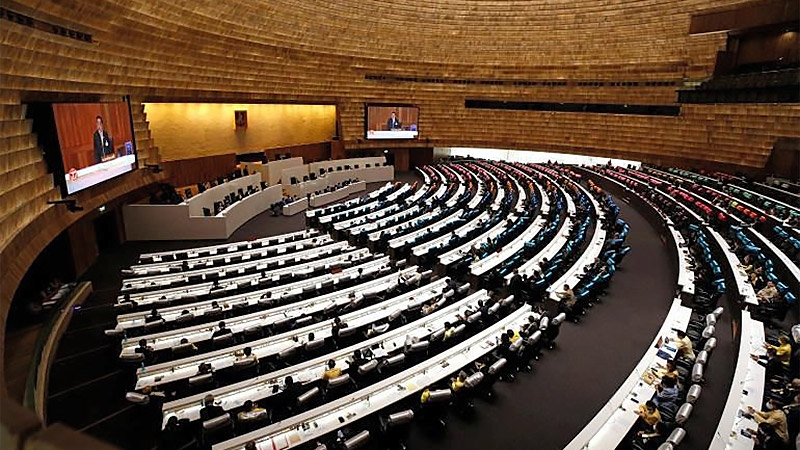A committee of the Thai National Assembly that is analyzing the possibility of legalizing gambling submitted a report to Parliament on Wednesday recommending the government issues a decree allowing “entertainment complexes” that include legal casinos to be built in key cities across the country, in an attempt to reactivate the economy.
If accepted, the blueprint could help Thailand in generating billions of dollars from foreign investors, travelers, and Thai gamblers “who would otherwise spend gaming money in neighboring countries,” according to the panel.
Pichet Chuamuangphan, the second vice-chairman of the committee, said: “We’re focused on attracting foreigners to step up tourism and draw more money out of their pockets. This will also stem the outflow of money from Thai gamblers and help the government collect hefty taxes for our economic security”.

He further explained that Greater Bangkok would be ideal for the initial casino, followed by facilities in seaside southern provinces such as Phuket, Krabi, or Phang Nga. Furthermore, tourist destinations like Chiang Mai in the north and Chonburi, home to beach resort Pattaya, are also obvious contenders among the 77 provinces. Chuamuangphan added that at least $11 billion in additional tax revenue would be collected annually once several facilities are operating.
The panel’s recommendations are built upon Thailand’s Gambling Act of 1935, which prohibits most types of betting but contains a provision that gives the government powers to issue decrees or licenses that green-light certain gaming activities and venues.
A key to successful facilities in Thailand would be to allow locals to participate, as foreigner-only properties in Vietnam and South Korea “showed how casinos suffer without steady foot traffic,” Bloomberg Intelligence analysts Angela Hanlee and Kai Lin Choo said in a March report. Currently, casinos in Poipet, a Cambodian city across the border, “are fed by Thai gamblers,” the report said.
Chuamuangphan explained that the proposed legislation would allow all forms of gambling, from traditional to online gambling, and that the government would allow concessions with the private sector, from which the government will collect 30% tax, including local tax which can be used for the maintenance of such venues.
The chairman further added that complexes must include facilities such as hotels, amusement parks, and retail outlets. “Providing multiple activities will avoid the creation of gambling dens and broaden the appeal of the tourism industry”, he said.
Thais who are at least 20 and have a minimum of 500,000 baht ($13.561) in bank accounts would be allowed to gamble, according to the proposal.
With the blueprint’s submission Wednesday, Thai lawmakers will next deliberate on whether to act on the recommendations, which could be concluded before a parliamentary recess in September, as reported by Bloomberg.













